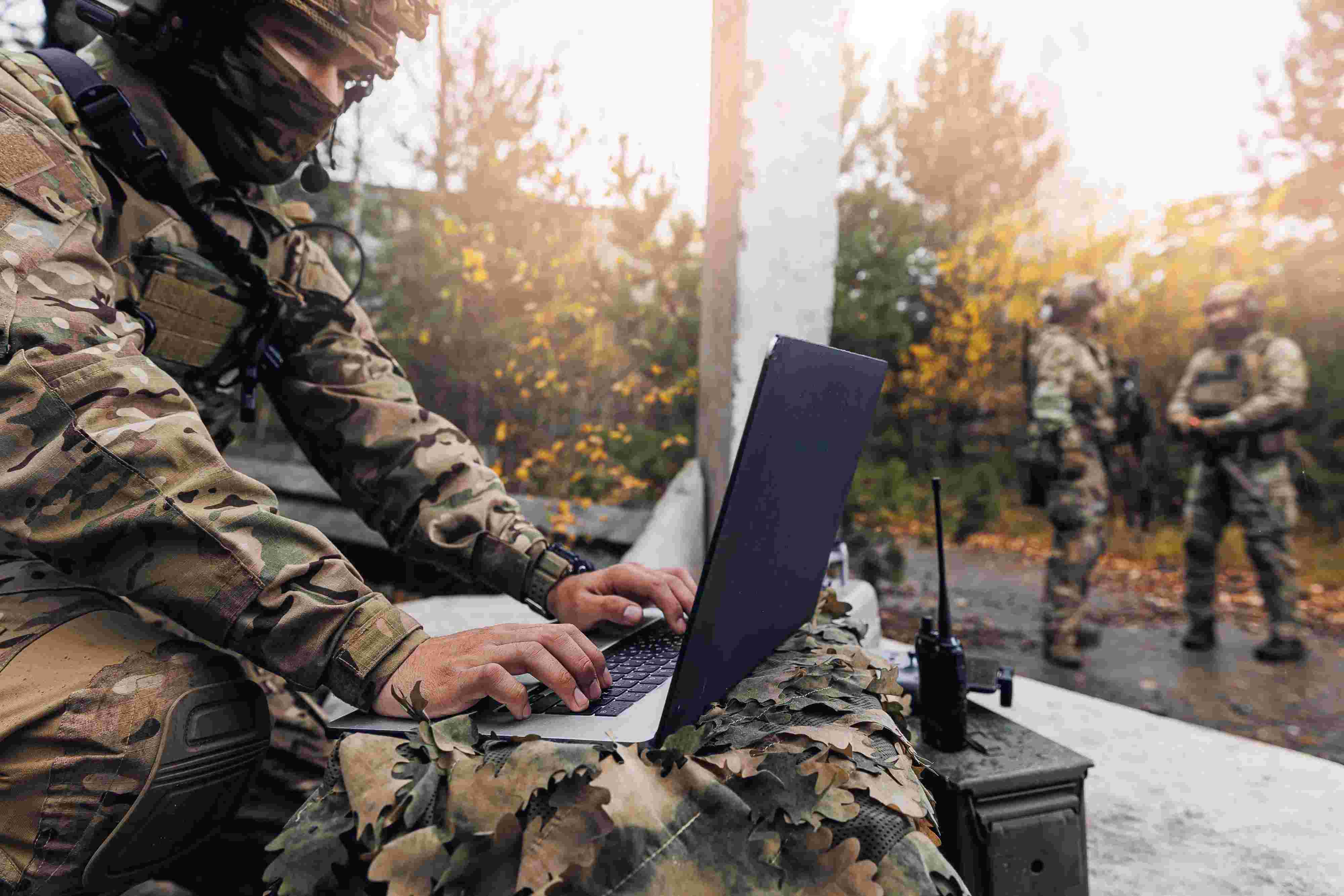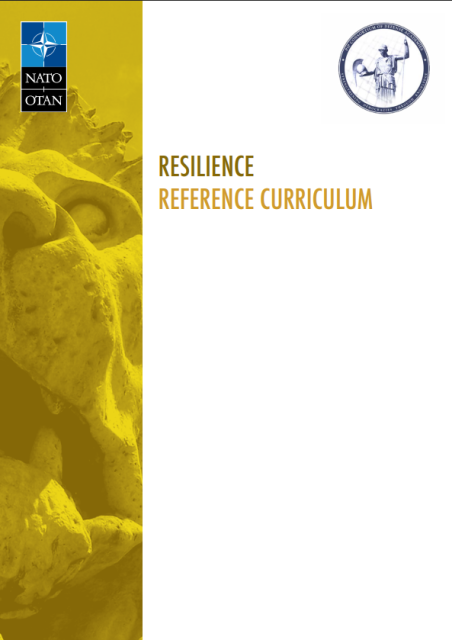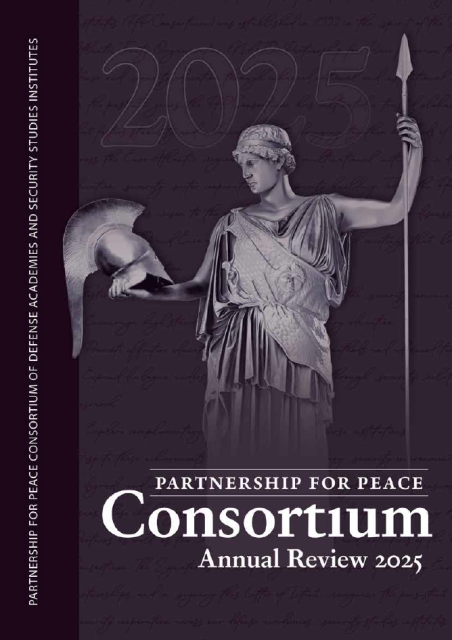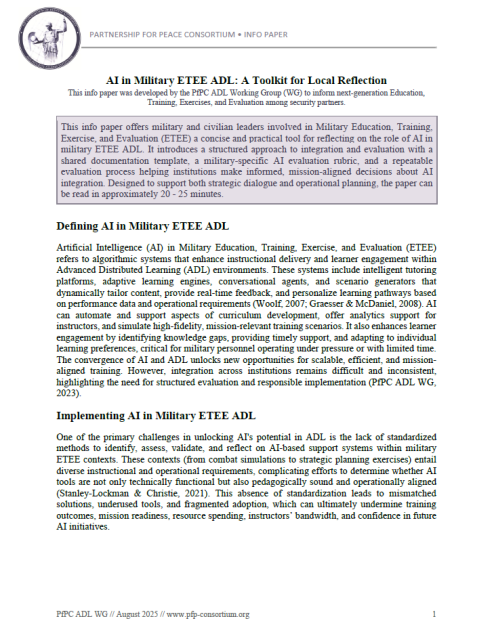
RIGA, Latvia — In a major step toward transforming military training resilience, the PfP Consortium’s Advanced Distributed Learning (ADL) Working Group is helping transition years of research and concept development into a real-world multinational operations plan that could redefine how allies and partners sustain training under crisis or war.
This effort is part of the Multinational Capability Development Campaign (MCDC) project on Sustaining Military Training (SMT). Building on wartime lessons from Ukraine and decades of allied experimentation with distributed learning, the SMT initiative is designed to ensure that troops across the alliance and its partners can continue to train — even when infrastructure is attacked, airspace is denied, or instructors are deployed to the front lines.
The PfPC ADL Working Group, a longtime innovator in digital education and learning interoperability, developed the foundational concept paper “Train While You Fight” in 2023. Now, working in close coordination with the MCDC project team — co-led by Germany, NATO ACT and the United Kingdom — the group is helping deliver operational tools to support this vision.
Planned outputs include a defense capability maturity model for training resilience, a commander’s guidebook, and a directory of shareable training capabilities. They are intended to support national and multinational continuity of training across multiple domains and threat environments. By leveraging distributed learning, multinational partnerships, and a PACE (primary, alternate, contingency, emergency) strategy, the project aims to provide allied forces with flexible and survivable training options that persist through crisis and conflict.
“Sustaining effective training through crisis and war is no longer a luxury; it’s an operational imperative,” said PfPC ADL Working Group Co-Chair Lt. Col. Michael Nickolaus. “Our goal is to ensure that training establishments can withstand disruption, and our people can keep learning while fighting.”
The SMT project spans 2025–26 and includes more than a dozen planning and development events in Europe and North America, including a major milestone at the NATO Training Technology Conference in September and Interservice/Industry Training, Simulation and Education Conference (I/ITSEC) in December. The PfPC has also encouraged allies and partners to join the project as observers or full contributors.
The initiative is closely aligned with NATO’s broader focus on operational resilience, coalition readiness and innovation. Through PfPC’s engagement, partner nations — many of whom lack deep resources but bring invaluable wartime insights — will have a voice in shaping NATO’s future training standards and doctrine.
Call to Action
The PfPC Secretariat encourages nations and institutions interested in contributing to the SMT project or participating in upcoming working meetings to contact the ADL Working Group leadership. An official info paper detailing the project’s background, structure, and deliverables is now available.
Background
The PfP Consortium ADL Working Group brings together military educators, technologists and policy leaders from NATO and partner nations. For more than a decade, the group has supported interoperability and digital transformation in defense education and has led multinational projects including the development of AI-enabled learning recommendations and guidance on sharing e-learning courseware.
For More Information
Download the full information paper: “Train While You Fight: Cooperation with Multinational Capability Development Campaign (MCDC) Project on Sustaining Military Training” on the sidebar to the left of this article.
You can learn more about the Advanced Distributed Learning Working Group here.







